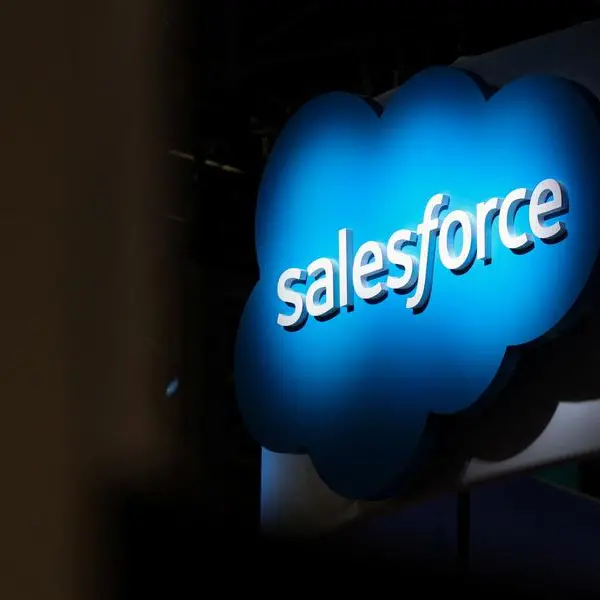PHOTO
If there’s one takeaway from Thursday’s US presidential debate, it’s the fact that Trump 2.0 could very well become a reality after the US elections this November.
The “debate night debacle”, as many are calling it on social media, saw US President Joe Biden stumble early through the proceedings, rattling Democrats, as Republican rival Donald Trump fired falsehoods with confidence in hopes of an eventual return to the White House.
As the 90-minute televised debate kicked into gear, reactions were swift and brutal, with American equity fund manager Grant Cardone calling the clash the “greatest political mistake in history!”
The market impact was perhaps more favourable, with the dollar and Bitcoin inching higher and stocks rising in Asian trading, according to Bloomberg. George Khoury, Global Head of Education and Research at CFI, said even as the US dollar recorded moderate volatility, the debate had tilted market expectations toward a Trump win, contributing to uncertainty.
“US Treasury yields saw a slight uptick as markets awaited critical inflation data and assessed the implications of the presidential debate. Two-year yields remain above the 4.70% mark, and 10-year yields were around the 4.3% level, although yields were relatively lower for June overall but could remain exposed to political developments,” he said.
While the US elections are still four months away, investors are now concerned more than ever about how Trump’s proposed tax cuts, foreign policy, and tougher trade relations could impact markets in the long run.
“Right now, I think the odds are slightly in favour of Trump, particularly in the swing states, as we all know that the US elections are decided not by the mass vote but by who does better in the swing states,” said Dorian Carrell, Fund Manager, Global Multi-Asset Income team, Schroders, ahead of the debate at the HSBC Market Outlook webinar.
“We think that if he wins, it won’t be a situation where the Republicans will have full control of the Congress as well. And that’s very important, as it makes some of the extreme policy outcomes [much] less likely.”
According to Carrell, fiscal spending will continue to be high and likely to be complemented by tax cuts. “We are starting from the point of view when fiscal deficits are around 7%, which is unprecedented when you have maximum employment. So the fiscal situation does not look great in the US, and the irony, of course, is that they have the exorbitant privilege of the dollar and so can afford to take on more risks than others.”
Republicans have been pushing for Trump’s Tax Cuts and Jobs Act (TCJA), which expires in 2025, to be made into law, despite a $4 trillion cost. In the likelihood Biden wins, he will oppose the extension of the law and push for higher taxes for the rich households and corporations.
A report by financial services firm Allianz predicts a Trump administration will most likely play it cautiously on fiscal policy after inheriting very large fiscal deficits from the Biden administration and rising interest expenses.
“Another round of large, deficit-financed tax cuts (or increased spending) could thus re-ignite inflation and heighten concerns about the sustainability of US public finances in bond markets. Besides, it is unlikely that fiscal hawks among the Republicans would sign off on large tax cuts or new spending, given the poor state of US public finances,” the report said.
Finally, the Trump administration may itself recognise that as long as public deficits remain large, it will be challenging to significantly reduce the trade deficit. “In this context, we would expect the Trump administration to fund its fiscal pledges with increased customs receipts and the repealing of some of President Biden’s policies.”
The other key concern of a Trump presidency is his pledge to crack down on trade diversion and tariff evasion, which both Allianz and Schroders have cautioned would prove inflationary.
“If tariffs are imposed, both on Europe and China, with the car industry being the clear target, [this] could lead to inflationary concerns, which if you put together with lower taxes, could lead to an overheating of the economy,” said Carrell.
Allianz forecasts that the crackdown on tariff evasion through stepped-up customs checks at the borders would push up short-term inflation by +0.6pp by lengthening suppliers’ delivery times, although a stronger USD could mitigate this effect.
“Last, against this backdrop, we would expect the Federal Reserve to be forced to pause its easing cycle in 2025 and the US 10-year yield to stay above 4%. Equity markets would likely undergo a downward adjustment due to the short-term impact of increased rates on valuations,” Allianz reported.
“The policy rate and Treasury yields would remain above 4%, and equity markets would be hit,” the report added.
(Reporting by Bindu Rai; editing by Seban Scaria)





















